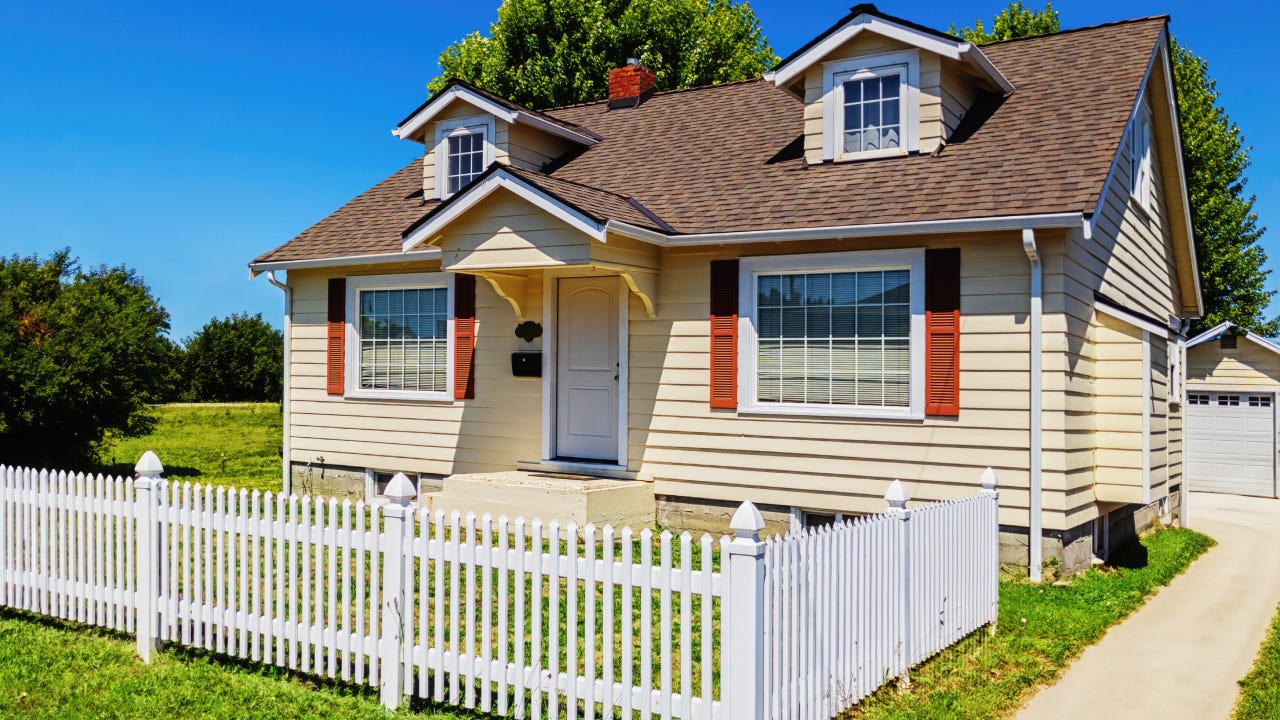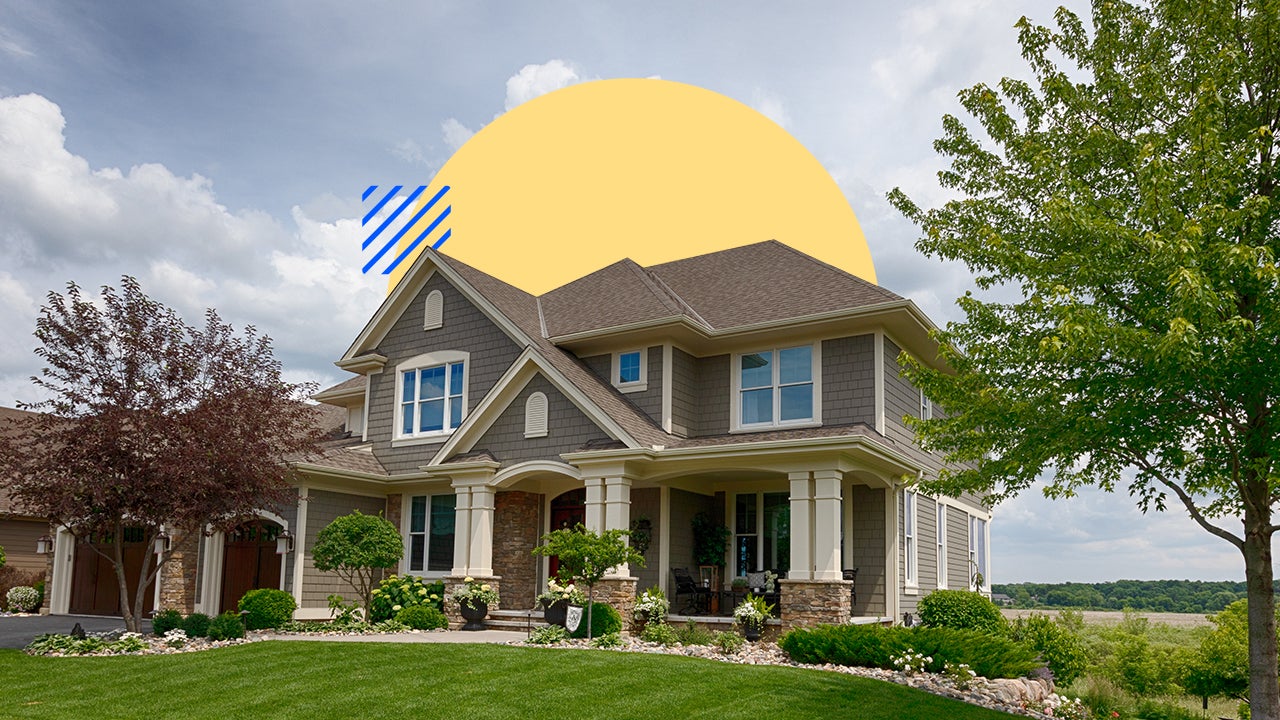What income do I need to afford a $350K house?

The median home sale price as of September is $394,300, according to the National Association of Realtors. But median means half sold for more, and half for less — there are plenty of homes around the country that are selling for around $350,000.
How much do you need to earn to pay for a home that’s $350,000, though? That will depend on a number of factors, including the amount of your down payment and the interest rate of your mortgage. Here’s how to find out the income needed for a $350K house.
Income to afford a $350K house
To figure out how much you need to earn for a $350,000 home purchase, start with the 28/36 rule. This guideline states that you shouldn’t spend more than 28 percent of your gross monthly income on housing costs, and that you shouldn’t spend more than 36 percent on all of your debt combined, including housing.
Bankrate’s mortgage calculator can help you figure out how a $350,000 purchase breaks down. Assuming a 20 percent down payment on a 30-year mortgage at a 7.5 percent interest rate, the monthly principal and interest payments come to $1,957. Don’t forget to include the fees that will vary depending on where you live, like property taxes, homeowners insurance and potential HOA dues. Let’s round that $1,957 up to $2,500 to account for those.
Multiply that monthly payment of $2,500 by 12 and you have an annual housing expense of $30,000. To stay roughly within the 28/36 rule, triple that annual figure to approximate about a third of your income — that means to comfortably afford a $350K home, you’d need to make around $90,000. (However, don’t forget that this calculation does not include your down payment and closing costs, which are paid upfront.)
Since $350,000 is below the national median home price, your options might be slightly more limited than they would be at a higher price point. But where you’re looking to buy makes a huge difference here: Your budget will go a whole lot further in some markets than others. For instance, the median home price in Houston was close to your target price at $328,000 in September, according to Redfin data. In San Diego, though, where it was upwards of $900,000, you won’t get nearly as much for your money.
What factors determine how much you can afford?
Buying a house is an expensive endeavor, and there’s plenty more to consider than just the home’s list price. Besides your annual income, here are other factors that impact how much house you can afford:
- Credit score: A higher credit score helps you qualify for the lowest interest rate available. Even a small difference in rate can save you thousands of dollars over the life of your home loan.
- Down payment: A 20 percent down payment is traditional, but many mortgage products don’t require you to put down that much. However, the more you can put down upfront, the lower your monthly payments will be, and 20 percent will help you avoid having to pay for private mortgage insurance.
- Debt-to-income ratio: Your DTI is how much you owe in debt in relation to how much you earn, expressed as a percentage (think the second number in that 28/36 rule). The lower your DTI, the more likely lenders will be to approve you for a loan.
- Loan-to-value ratio: Similarly, your LTV is a measure of your loan amount in relation to how much the property is worth. Lower is also better for this metric, in the eyes of a lender.
- Potential assistance: A 20 percent down payment can seem like an impossible amount to save — on a $350K house, it comes to $70,000, payable upfront. But luckily, down payment help is available if you qualify, and there are many more programs out there specifically for first-time homebuyers as well. Look into what’s available in your area.
Stay the course until you actually close
An experienced local real estate agent can help you make sure your transaction runs smoothly, from start (finding a home) to finish (closing day). And remember that once you go into contract on a home, you could still have a long time to wait before closing. It’s important, in the meantime, to stay vigilant about your overall financial picture — your mortgage loan isn’t official until it’s official, and you don’t want to make any moves that could cause your lender to reconsider. Avoid anything that could impact or change your credit score in particular, such as applying for new credit cards or making big-ticket purchases (such as a new car). And try not to switch jobs or do anything that could make your finances seem less than stable until the deal is fully done.
FAQs
-
Your monthly payments will be based not only on the home’s cost, but also the amount of your down payment, your mortgage interest rate and more. For a $350,000 home purchase, if you make a 20 percent down payment on a 30-year mortgage at a 7.5 percent interest rate, the monthly principal and interest payments come to $1,957. That does not include the additional monthly costs of homeowners insurance and property taxes, which will vary depending on the home’s location.
-
Following the 28/36 rule, a guideline many mortgage lenders use to gauge how much you can afford, you’d likely need to earn at least $90,000 per year to afford a $350,000 house without spreading yourself too thin. Keep in mind that figure does not include upfront payments, like your down payment and closing costs.
Why we ask for feedback Your feedback helps us improve our content and services. It takes less than a minute to complete.
Your responses are anonymous and will only be used for improving our website.
You may also like

How much house can I afford with a $180K salary?

What income do I need to afford a $750K house?




